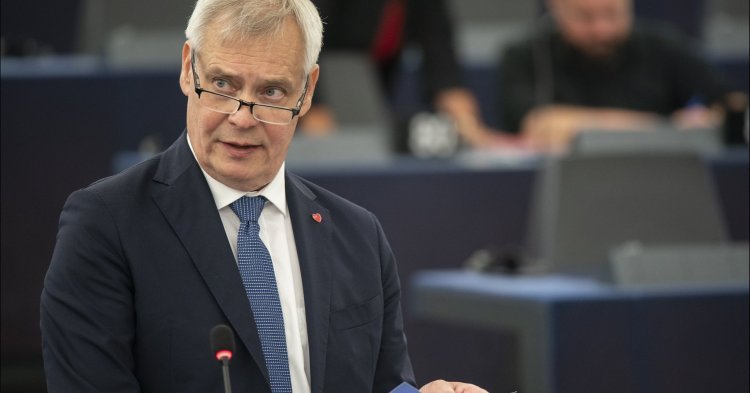A postal service strike that escalated
In November, thousands of workers at the Finnish postal services began a strike, protesting changes in 700 employees’ working conditions. As other unions in the transport sector joined the strikes, transport across the country was disrupted. On 25th November, the Finnair airliner had to cancel 300 flights, and cruise boats sailing under the Finnish flag stood still in ports. The dispute finished on 27th November, with employees successfully resisting the change that would have weakened their contracts.
Though the logistical chaos was over, the political crisis was only just beginning. Last Thursday, on 28th November, the Social Democrat Prime Minister told the Finnish Parliament that the employers’ demands in the labour dispute went against the government’s expressed will, but that the governing board of the state-owned postal service wanted to push through the changes regardless. The chair of the governing board, Markku Pohjola, contradicted the Prime Minister’s statement, saying that the Finnish government had not opposed the initiative. The opposition then accused the Prime Minister of deliberately misleading the Parliament.
Antti Rinne’s government was a coalition between the Social Democrats, Centre Party, Greens, Left Alliance and the Swedish People’s Party. Of the coalition partners, the Centre Party declared on Monday that it no longer had confidence in Rinne as the Prime Minister, which prompted the Prime Minister to tender his resignation to the President on Tuesday morning.
The show must go on
Though Antti Rinne personally no longer enjoyed majority support within the Finnish Parliament, the Centre Party emphasised that it is happy with the government coalition, and the government’s four-year plan. The current government has only been in power for six months since the April election, and mainstream parties are not keen on an early election, given the fact that the far-right Finns Party has a clear lead in opinion polls.
For the moment, Antti Rinne’s cabinet continues as an interim administration. Before the Social Democrats can launch negotiations for a new government, they must choose a new candidate for the position of Prime Minister. The two main contenders are the party’s 34-year-old first vice-president Sanna Marin, and the 37-year-old Social Democrat parliamentary group leader Antti Lindtman.
In the new coalition negotiations, it is possible that the only change to the current government will be the name of the Prime Minister. Sanna Marin has said that the government’s four-year programme wouldn’t be up for renegotiation. The Speaker of the Finnish Parliament, ex-Prime Minister Matti Vanhanen, has estimated that the negotiations may take less than a week if the new government consists of the same parties as the current one. Mistrust between the Social Democrats and the Centre Party may well remain, but otherwise we might see remarkable continuity in Finnish politics after the crisis.
As the interim Prime Minister, Antti Rinne will represent Finland in the European Council meeting on 12–13 December, unless the Parliament has already elected a new Prime Minister by then. The meeting will be the last major event in EU politics before the Finnish EU presidency finishes at New Year.
A sign of Finnish honesty?
This is not the first time that a Finnish Prime Minister has had to face tough consequences for misleading the Parliament. In 2003, Finland’s first female Prime Minister, Anneli Jäätteenmäki of the Centre Party, was forced to resign after it transpired that she had requested a civil servant to send her secret documents concerning Finland’s cooperation with the United States during the Iraq War, instead of receiving the documents unexpectedly as she had previously claimed. After the Social Democrats forced Jäätteenmäki to resign, Matti Vanhanen of the Centre Party took over as Prime Minister without an early election taking place. The civil servant who leaked the secret documents to Jäätteenmäki was fined.
In 2015, Alexander Stubb from the centre-right National Coalition had to apologise profusely and repeatedly after falsely claiming that 90% of expert opinions he had received concerning a bond policy proposal were positive. However, he did not have to resign. Now, Antti Rinne has had to pay the price for one false statement at the dispatch box.
From an international perspective, the Stubb and Rinne scandals in particular seem remarkably minor. The stories don’t involve collusion with the Russians, or illegally shutting down the Parliament. On the face of it, the takeaway message seems to be that even in the ‘post-truth era’, Finnish leaders are still held to a high standard of honesty and integrity. In that sense, the government crisis should in fact reflect well on Finland.
At the same time, however, the Centre Party’s motivations for wanting to get rid of Antti Rinne are being debated in Finland. Robert Sundman from the public broadcaster YLE notes that Rinne, an unpopular Prime Minister, also dragged the Centre Party down in the polls. The YLE article also cites speculations, disputed by the Centre Party, that the party’s right wing was motivated by its political differences with the left-wing Rinne.
Even if political motivations played a part in the Centre Party pushing Antti Rinne out, the current Finnish government crisis sets another precedent in the country’s politics: if you’re untruthful in the Parliament, you’re at a risk of facing real consequences. The Centre Party doesn’t seem to be facing major backlash for blowing the story out of proportion.
In other words, there seems to be support for the idea that the very act of lying can be an offence which may cause a politician to resign. While Finland may have seen its government collapse during its own EU presidency, other countries should not necessarily be laughing. On the contrary, Finland may even serve as a positive example of how to keep calm and carry on.


Follow the comments: |
|
